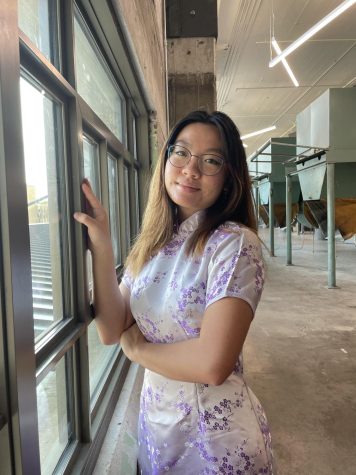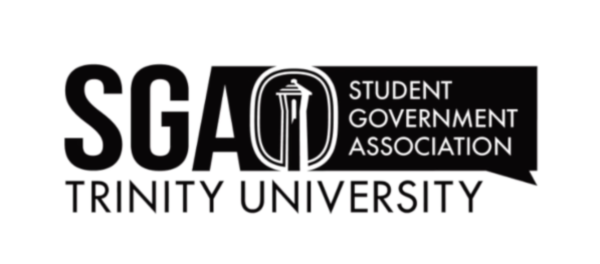Proposition A: Your vote matters more than you think
Trinity students discuss Proposition A and the importance of voting in local elections
Municipal elections will be held in every county in Texas on May 6. Within the San Antonio city limits, citizens will be voting for mayor and their district’s seat on city council on the same ballot. Voters will also be either approving or rejecting Proposition A, which outlines six different policy proposals. Among these are decriminalizing abortion, decriminalizing marijuana use, expanding cite-and-release application as opposed to jail time, banning police use of chokeholds and no-knock warrants and adding a justice director in the city government.
Voter opinions differ on each motion within the packed proposition. Marijuana decriminalization has been met with relatively little controversy compared to the other clauses. Sarah Solis, junior history and political science double major and co-president of TU Progressives, found no issue with the introduction of lax marijuana laws.
“I think [marijuana decriminalization is] great, and I think it would really be helpful for the city of San Antonio,” Solis said. “This is something that’s already happened in a lot of cities and counties in Texas.”
While marijuana decriminalization has been successful in other counties, students question the effectiveness of decriminalizing abortion in a Texas city. Meg McDonald, a senior Greek and Mediterranean studies double-major and president of the TU Pro-Choice club, argued that it should be supported but that its outcomes will be underwhelming.
“At the end of the day, decriminalization is not legalization. It’s not going to allow for … abortion providers to immediately come back within the state. It’s not going to allow for … the access to abortion to fully continue in San Antonio and especially not in the surrounding areas,” McDonald said. “But I think certainly it would provide some security for Trinity students — just knowing that if you do need to seek this care, that at least within the county lines … you would not be in danger of litigation.”
Support for Proposition A falters outside of the decriminalization of marijuana and abortion. Solis discussed how her unsettled stance on the referendum is emphasized by the unnecessary repetition of the proposals.
“I’m sort of iffy on [proposition A]. One, it outlines a lot of things, … [banning] choke-holds and also banning no-knock warrants, which sounds really great, right, except for the fact that chokeholds and no-knock warrants are already banned in San Antonio,” Solis said. “The only time a police officer in the San Antonio police department can use a chokehold is when they think their life is in danger, so the San Antonio justice charter is going to ban it even further so you can’t use it at all.”
The bans on chokeholds and no-knock warrants aren’t the only sections of the proposition that has Solis feeling unsettled. Solis mentioned how the expansion of cite-and-release laws and the addition of a justice director may cause more harm than good.
“One of the things the San Antonio justice charter also outlines is decriminalizing … theft up to $750. Now, the minimum wage in San Antonio is $7.25, so it’s decriminalizing stealing up to 2 weeks of someone’s paycheck,” Solis said. “The language on the San Antonio justice charter is really wishy-washy on what the justice director will do, and a lot of people in San Antonio think it’s just going to be an additional expense. There’s pretty much already someone who does that work for Bexar County.”
Proposition A’s purpose may lie in serving as precedent and reminding voters of their power. This proposition will be the first to include abortion, and Solis suggested that its passage can be a signifier of hope.
“It’s the first time decriminalizing abortion is going to be on a ballot in the state of Texas, so it’s a very hopeful proposition,” Solis said. “It gives college students hope that you can actually change what the federal government has done [by overturning Roe v. Wade].”
Aside from the abortion clause, the proposition as a whole gives college voters the chance to fight against suppression. McDonald echoed this sentiment, arguing for the importance of this referendum.
“I think really the big thing is going to be … a reaffirmation to people that voting can make a difference. There’s a lot of just … demoralization surrounding voting, which, you know, is a big tactic for voter suppression: the fear that your voting rights are not important, that your vote doesn’t matter and that there’s nothing you can do,” McDonald said. “I hope that in the future this can turn into people voting in general elections … being more willing and participating in local politics.”
Though improving, participation in local politics is incredibly low, according to SA2020, despite the magnitude of their impacts. David Crockett, professor and chair of the political science department, reminded students of the importance of local elections.
“We live in a democratic republic where the last words rest with the citizens, and we have the great privilege of having a say in how we are governed, from the local level to the federal,” Crockett said. “Despite the growth in power of the federal government, in many ways, it is the local government that has the greatest direct impact on our daily lives.”
College students have the ability to influence the outcome of these elections, especially because local turnout is so small. Crockett emphasized this point and the impact that Trinity students specifically can make.
“Small numbers can have an outsized impact on the final results,” Crockett said. “Trinity students should vote in local elections – whether here in San Antonio or absentee in their homes of record.”
Danae Barkocy, junior political science major and co-president of TU Progressives, echoed Crockett’s affirmation. Trinity students have more of an effect than they think, and this proposition is an opportunity for them to get involved.
“A lot of people discount local elections because they’re so small, but the fact that they’re so small is actually the reason why they matter so much. These elections have notoriously low turnout, and Trinity is a campus of 2500 people,” Barkocy said. “Trinity students should absolutely care about local elections.”

Hi! My name is Samara Gerstle (she/her), and I’m the managing editor of the Trinitonian. I’m a junior English major with minors in creative writing...

Hi guys! My name is Lily Zeng, and I am a sophomore from Memphis, TN majoring in Urban Studies with an interest in a Spanish major or minor. My favorite...











Eric Lindsay • Apr 7, 2023 at 9:27 pm
VOTE NO on Prop A! To understand why to VOTE NO simply look at what has happened in other metropolitan areas that have passed city ordinances resembling Prop A. They have been unequivocal disasters. Portland, Oakland, San Francisco, and Los Angeles have all seen increases in crime especially in the form of organized retail theft and violent crime. Search YouTube for Jeff Reisig, a district attorney who provides an objective account of what these types of ordinances have done. YouTube Vern Pierson, who provides first-hand insight into what decriminalizing certain levels of shoplifting have done across California as a result of proposition 47. Why is Walmart closing all of its stores in downtown Portland? Why are small businesses leaving east Oakland? VOTE NO on Prop A!